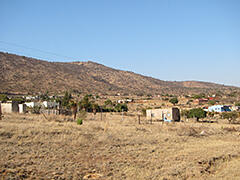Establishment of an Early-warning System for Infectious Diseases in Southern Africa Incorporating Climate Predictions
Principal Investigator
-


Prof.
Institute of Tropical Medicine, Nagasaki University
MINAKAWA Noboru


Dr.
Director, Alliance for Collaboration on Climate & Earth Systems Science (ACCESS)
Neville Sweijd
ODA Recipient Country
Republic of South Africa
Research Institutions in Japan
Nagasaki University / Japan Agency for Marine-Earth Science and Technology (JAMSTEC)
Research Institutions in Counterpart Country
Alliance for Collaboration on Climate & Earth Systems Science (ACCESS), etc.
Adoption fiscal year
FY 2013
Research Period
5 Years
Overview of the Research Project
Establishment of an early-warning system for infectious diseases in Southern Africa, incorporating climate predictions
In Southern Africa, where poverty is prominent, lives are threatened by infectious diseases. Recent climate changes have increased the possible risks of infectious disease outbreaks in unexpected regions and on scales previously unknown. This project is developing an infectious disease outbreak prediction model that incorporates the influences of a variety of environmental factors into the climate change models in order to predict the outbreaks of malaria, pneumonia, and diarrheal diseases such as cholera that are predominantly affected by climate conditions. The ultimate aim of the research is to build an early warning system that can be applied in implementing effective countermeasures for infectious disease.
Future application of the system for areas other than Southern Africa!
By effectively utilizing the informative resources available to government institutions based on the early warning system, the number of people suffering from diseases can be reduced. The predictions can be applied through approaches involving appropriate preventative measures during warning periods and in high-risk regions (including implementation of countermeasures, preparation of medicines and diagnostic kits for an early response). In the future, the system can also be expected to be developed and deployed in areas outside Southern Africa.
Photo gallery
Research Project Web site
Press Release
Links
Projects
Contact Us
Japan Science and Technology Agency (JST)
Department of International Affairs
SATREPS Group
TEL : +81-3-5214-8085
Related articles by Category
- Infectious Diseases Control
Infectious Diseases Control

 Kingdom of Thailand
Kingdom of Thailand
Helping Tuberculosis Patients: Strengthening TB Control Strategies through Genomic Analysis!
Integrative Application of Human and Pathogen Genomic Information for Tuberculosis Control
- Southafrica
Environment / Energy
(Carbon Neutrality)
 Republic of South Africa
Republic of South Africa
From the world’s strongest sunlight, making the cheapest ammonia to save Africa and Japan
Development of New Ammonia Synthesis System using Renewable Energy and Hydrogen
- Africa
Environment / Energy
(Global-scale environmental issues)
 Republic of Zambia
Republic of Zambia
Experienced, not taught - Realizing safe water, sanitation and hygiene in Africa
Risk-based Participatory WASH Planning and Citizen-data WASH Statistics for African Peri-urban Settlements
- SDGs : Goal.3
Environment / Energy
(Global-scale environmental issues)
 Kingdom of Cambodia
Kingdom of Cambodia
Develop human resources to solve air pollution problems in Cambodia! Observation, analysis then countermeasures
Establishment of Risk Management Platform for Air Pollution in Cambodia


















